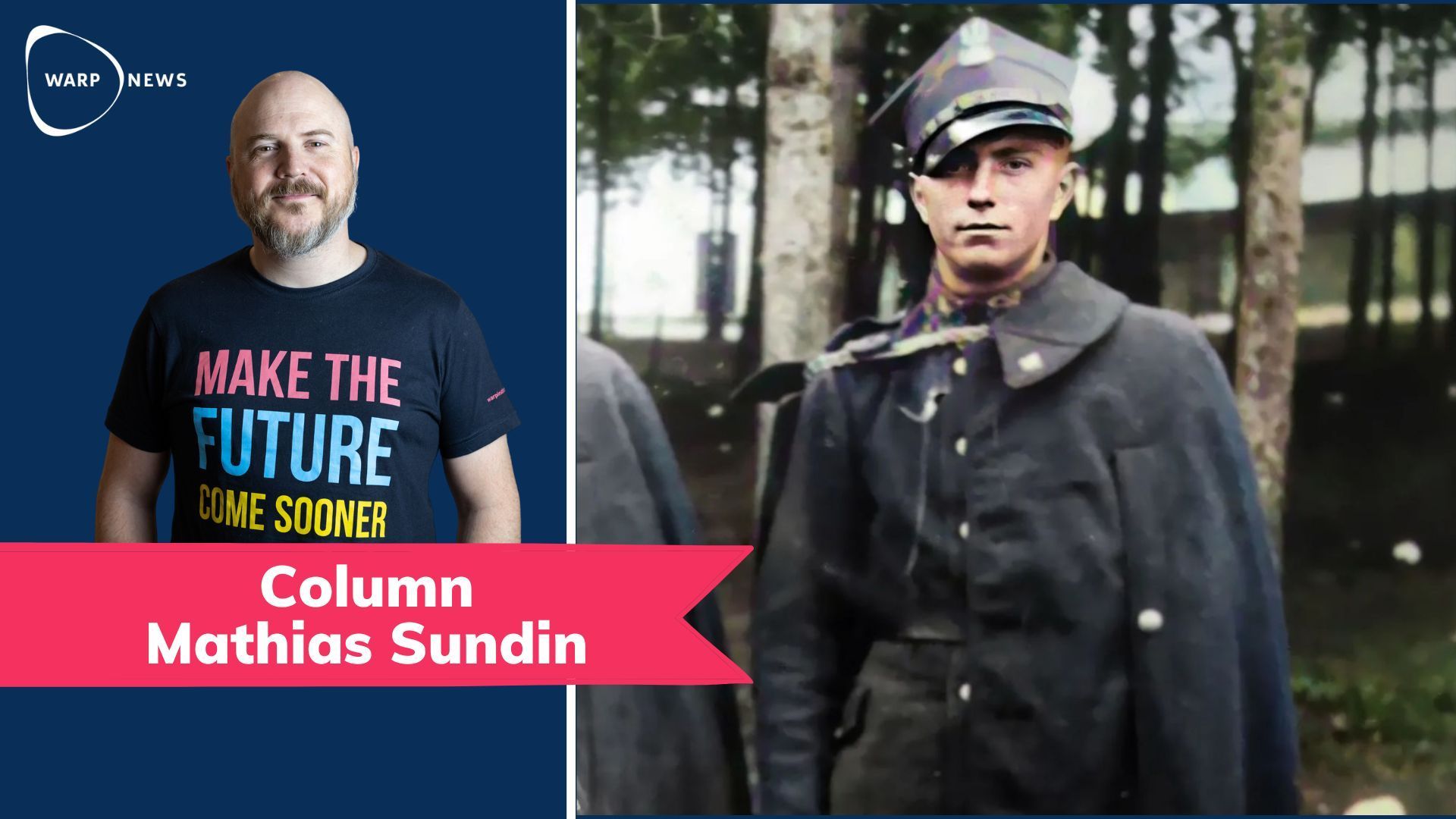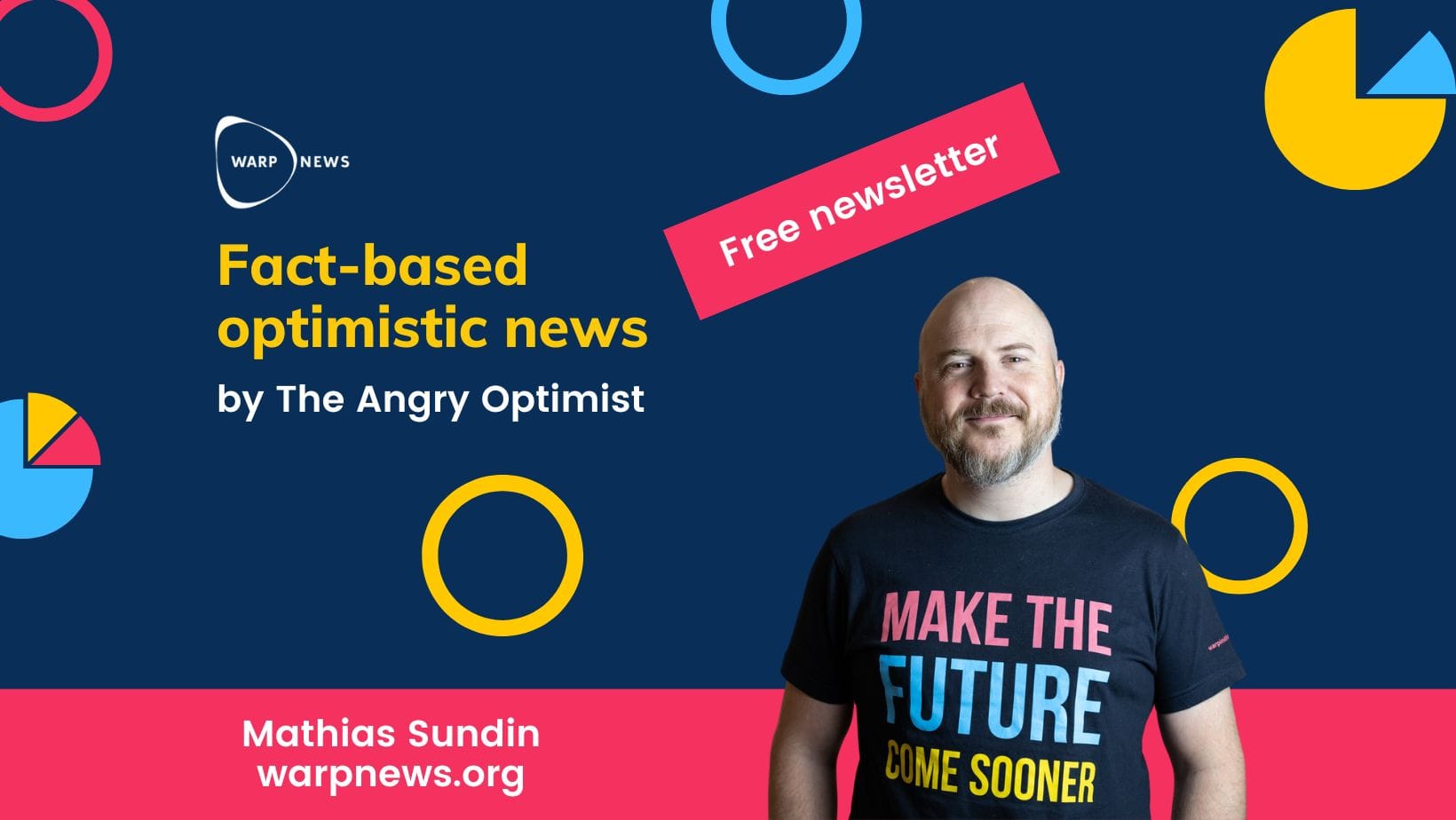💡 Warp News #171
We will do investigating journalism on the theme "too bad to be true." And you get to pick the topic!
Share this story!
🗳️ Vote: Which investigation should we do?
We will do investigating journalism on the theme "too bad to be true."
And you get to pick the topic!
We have three hypotheses on topics we think are presented in mainstream media in a way that is too bad to be true.
The purpose is to correct an excessively negative view. Not to minimize a real problem, but rather to show it in the right proportions.
We also want to show that humanity can solve problems. In the example of the animals (read more below), our hypothesis is that we are not facing a sixth mass extinction. Instead, the trend has reversed. If we do more of what we do right, and less of what we do wrong, we can solve the whole problem.
Three investigations, choose one
We have of course done a certain amount of preliminary work, but we will approach them with an open mind and really show you the facts.
For each, we have three claims that are common in other news media. And then we have three hypotheses about what we think reality actually looks like.
Read the statement, the hypothesis and then click the button below to vote on which one we should do.
1) Airline travel by people in rich countries is a serious environmental threat
Our hypothesis:
- The CO2 contribution from flying has little significance for the climate
- The flight's emissions per passenger have been falling for several years
- Aircraft propulsion technology is becoming increasingly green
2) We are in the sixth mass extinction of animals and other species
- The number of species in the rich countries are no longer shrinking. In many cases, they increase. Recently, species have stopped declining even in poor countries
- What is known as species extinction is almost entirely about shrinking populations
- The extremely large number of species said to be continuously extinct comes from theoretical models of insects and even smaller organisms assumed to disappear
- Among larger species, few extinctions in modern times have been documented
3) Watching a screen is harmful to children
Our hypothesis:
- The right kind of watching a screen (the right content and amount) is good for children
- The opposition to screens is based on similar false arguments advanced against previous new technologies (VCR, computer games, Walkmans, etc)
- The WHO recommendation of zero screen time for children under the age of two lacks scientific support
💡 Optimist's Edge: Why we should make the future come sooner

💡 Do you think fast progress is dangerous? Use the seat belt test. What if the seat belt had been invented ten years earlier? If progress in vehicle safety had been faster, thousands of lives would have been saved.
💡 Optimist’s Edge: Why we should make the future come sooner
👨👩👧 This is why the world is getting better and better

The story of Polish prisoner of war and a Norwegian farmer shows why the world is getting better.
Read this Premium Supporter article on Warp News
🇳🇴 Norway gets fully electric public transport system
At the end of this year, travelers in Oslo, Norway can expect to circulate fossil fuel-free as the city plans the world’s first fully electric public transit system.
🌺 Tropical forests ravaged by logging can still have thriving ecosystems
A new study shows that logged forests in Borneo have more abundant birds and mammals than pristine forests. This shows that conservationists should still try to protect these lands and habitats.
🧠 Chatbot can detect early signs of Alzheimer's
The same AI model used for ChatGPT can now also analyze texts people write to see if a person has early-stage Alzheimer's.
💉 The body's own "message in a bottle" can provide better cancer treatment
Nanoparticles that the body's cells use to communicate can give the immune system a better chance of fighting cancer tumors.
💊 New skin cancer treatment more effective than expected
A new combination of drugs proves effective against advanced skin cancer, according to a three-year clinical study. Half of all participants showed a complete response, and after one year of treatment, 80 percent of participants survived.
♻️ Sustainability Boosts Zero-Waste Packaging Market
The zero-waste packaging market is anticipated to expand significantly due to the growing focus on sustainable packaging together with improving waste management infrastructure.
💸 Wishing Well gives money to the poor
The money that tourists throw into the Trevi Fountain goes to help the poor in Rome.
By becoming a premium supporter, you help in the creation and sharing of fact-based optimistic news all over the world.
